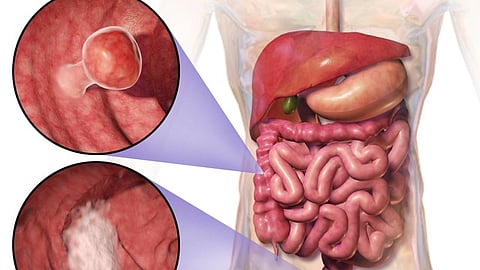

Key Takeaways
The study analyzed the surgical outcomes of Medicare beneficiaries who underwent proctectomy (surgical removal of the rectum) between 2017 and 2020.
Patients treated at hospitals accredited by the National Accreditation Program for Rectal Cancer experienced lower rates of in-hospital mortality compared to those treated at non-accredited hospitals.
CHICAGO (March 28, 2024): Hospitals accredited by the American College of Surgeons (ACS) National Accreditation Program for Rectal Cancer (NAPRC) demonstrate significantly better outcomes for patients undergoing rectal cancer surgery compared to non-accredited hospitals, according to a new study published in the Journal of the American College of Surgeons (JACS).
The study analyzed the surgical outcomes of Medicare beneficiaries who underwent proctectomy (surgical removal of the rectum) between 2017 and 2020. The researchers found that patients treated at hospitals accredited by the NAPRC experienced lower rates of in-hospital mortality compared to those treated at non-accredited hospitals: (1.1% vs. 1.3%), 30-day mortality (2.1% vs. 2.9%), 30-day complications (18.3% vs. 19.4%), and 1-year mortality rates (11.0% vs. 12.1%).
The NAPRC, established by the ACS in 2017, sets rigorous standards centered on multidisciplinary program structure, evidence-based care processes, and internal auditing. These standards aim to address the variability in rectal cancer treatment practices and outcomes, ensuring patients receive the highest quality care.
“Our findings suggest that adherence to NAPRC standards can significantly improve the outcomes for patients undergoing major rectal cancer surgery,” said lead author of the study, Calista Harbaugh, MD, MSc, assistant professor in the division of colorectal surgery at the University of Michigan. “The accreditation process, while resource-intensive, holds the potential to elevate the standard of care and reduce morbidity and mortality associated with rectal cancer surgery."
Despite the benefits, only 3.3% (65 out of 1,985) of included hospitals are NAPRC accredited. However, these accredited centers treat a larger proportion of patients. Among 20,202 patients, 2,078 (10%) underwent proctectomy at an accredited hospital.
Researchers believe NAPRC accreditation improves outcomes due to its emphasis on multidisciplinary care and stringent process standards, which include comprehensive pre- and post-operative assessments, ensuring higher quality care. The focus on collaborative care, meticulous reviews, and adherence to structured treatment protocols could be crucial elements enhancing patient safety and reducing mortality and complications following rectal cancer surgery.
The study also demonstrates that accredited hospitals are more likely to be nonprofit and teaching institutions with a larger bed capacity. A limitation of the study is that it may not capture hospitals in the process of becoming accredited since a facility must demonstrate 12 months of compliance with all of the NAPRC standards before accreditation.
One area for future research, the authors note, lies in extending the scope beyond one-year survival rates to examine long-term oncologic outcomes. This involves a deeper analysis of the quality of surgical outcomes over a more extended period, which could provide more comprehensive insights into the longevity and quality of life for patients post-proctectomy. Longitudinal studies could help identify the long-term impacts of adherence to NAPRC standards on survival, recurrence rates, and other critical oncologic outcomes.
“NAPRC accreditation differs fundamentally from other programs because it prioritizes processes over sheer volume or isolated outcomes,” said Dr. Harbaugh, “It’s not merely about how many procedures we perform, but how we perform them, integrating multidisciplinary care, rigorous internal audits, and continuous improvement into the fabric of our treatment protocols.”
Citation: Harbaugh CM, Kunnath NJ, Suwanabol PA, et al. Association of National Accreditation Program for Rectal Cancer (NAPRC) accreditation with outcomes after rectal cancer surgery. Journal of the American College of Surgeons, 2024. DOI: 10.1097/XCS.0000000000001064
Conflicts of interest: The authors declare no conflict of interest.
Funding: This research did not receive external funding.
This study is published as an article in press on the JACS website.
(Newswise/KV)
